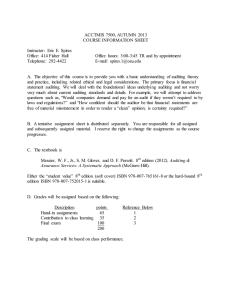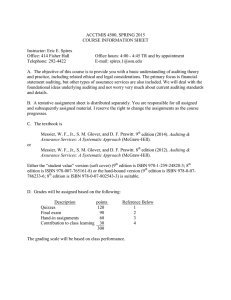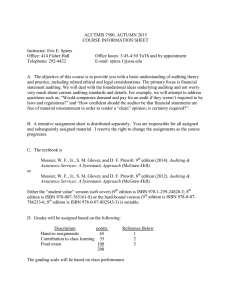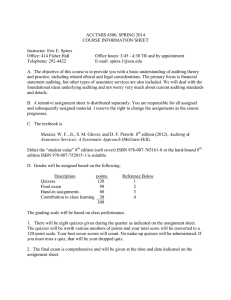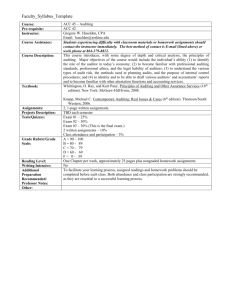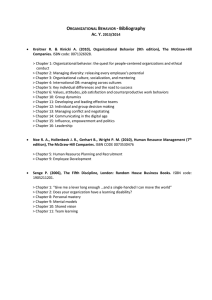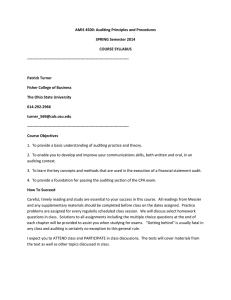ACCTMIS 7500, AUTUMN 2014 COURSE INFORMATION SHEET Instructor: Eric E. Spires
advertisement
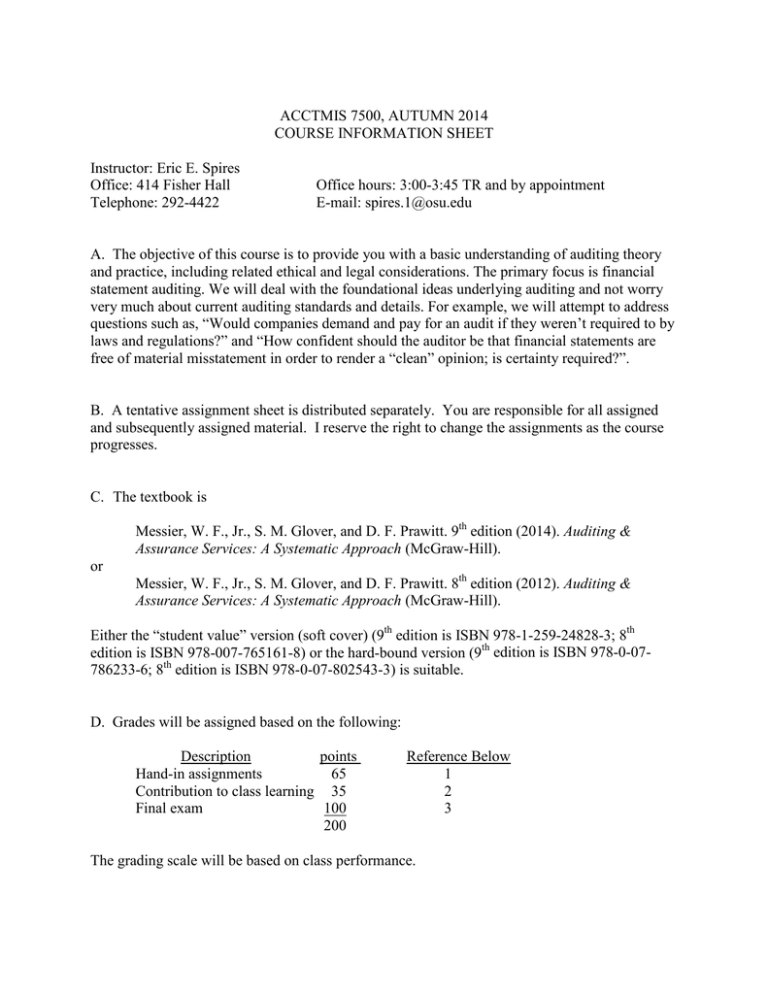
ACCTMIS 7500, AUTUMN 2014 COURSE INFORMATION SHEET Instructor: Eric E. Spires Office: 414 Fisher Hall Telephone: 292-4422 Office hours: 3:00-3:45 TR and by appointment E-mail: spires.1@osu.edu A. The objective of this course is to provide you with a basic understanding of auditing theory and practice, including related ethical and legal considerations. The primary focus is financial statement auditing. We will deal with the foundational ideas underlying auditing and not worry very much about current auditing standards and details. For example, we will attempt to address questions such as, “Would companies demand and pay for an audit if they weren’t required to by laws and regulations?” and “How confident should the auditor be that financial statements are free of material misstatement in order to render a “clean” opinion; is certainty required?”. B. A tentative assignment sheet is distributed separately. You are responsible for all assigned and subsequently assigned material. I reserve the right to change the assignments as the course progresses. C. The textbook is Messier, W. F., Jr., S. M. Glover, and D. F. Prawitt. 9th edition (2014). Auditing & Assurance Services: A Systematic Approach (McGraw-Hill). or Messier, W. F., Jr., S. M. Glover, and D. F. Prawitt. 8th edition (2012). Auditing & Assurance Services: A Systematic Approach (McGraw-Hill). Either the “student value” version (soft cover) (9th edition is ISBN 978-1-259-24828-3; 8th edition is ISBN 978-007-765161-8) or the hard-bound version (9th edition is ISBN 978-0-07786233-6; 8th edition is ISBN 978-0-07-802543-3) is suitable. D. Grades will be assigned based on the following: Description points Hand-in assignments 65 Contribution to class learning 35 Final exam 100 200 Reference Below 1 2 3 The grading scale will be based on class performance. 1. There are eight cases; each case is worth 8 points. Case write-ups will be collected as specified on the assignment sheet. Most of the cases involve investigation and evaluation of a problem in essay form. To obtain credit for the case, your work must be neat and indicate that you made a valid attempt to solve the problem. Whether the solution is correct has little bearing on whether you receive credit. No late assignments will be accepted. 2. Although I will formally lecture occasionally, much of the class time will consist of discussions led by me. You are expected to participate in the discussions and contribute to class learning. Points will be awarded based on my evaluation of the quality of your contributions. 3. The final exam is comprehensive and will be given at the time and date indicated on the assignment sheet. E. Here is some advice (hopefully worth more than the cost) that will help you succeed in this course: a. Attend class. b. Do all the assigned homework. c. Do not fall behind. d. Review past class notes regularly. e. Ask questions and participate.
